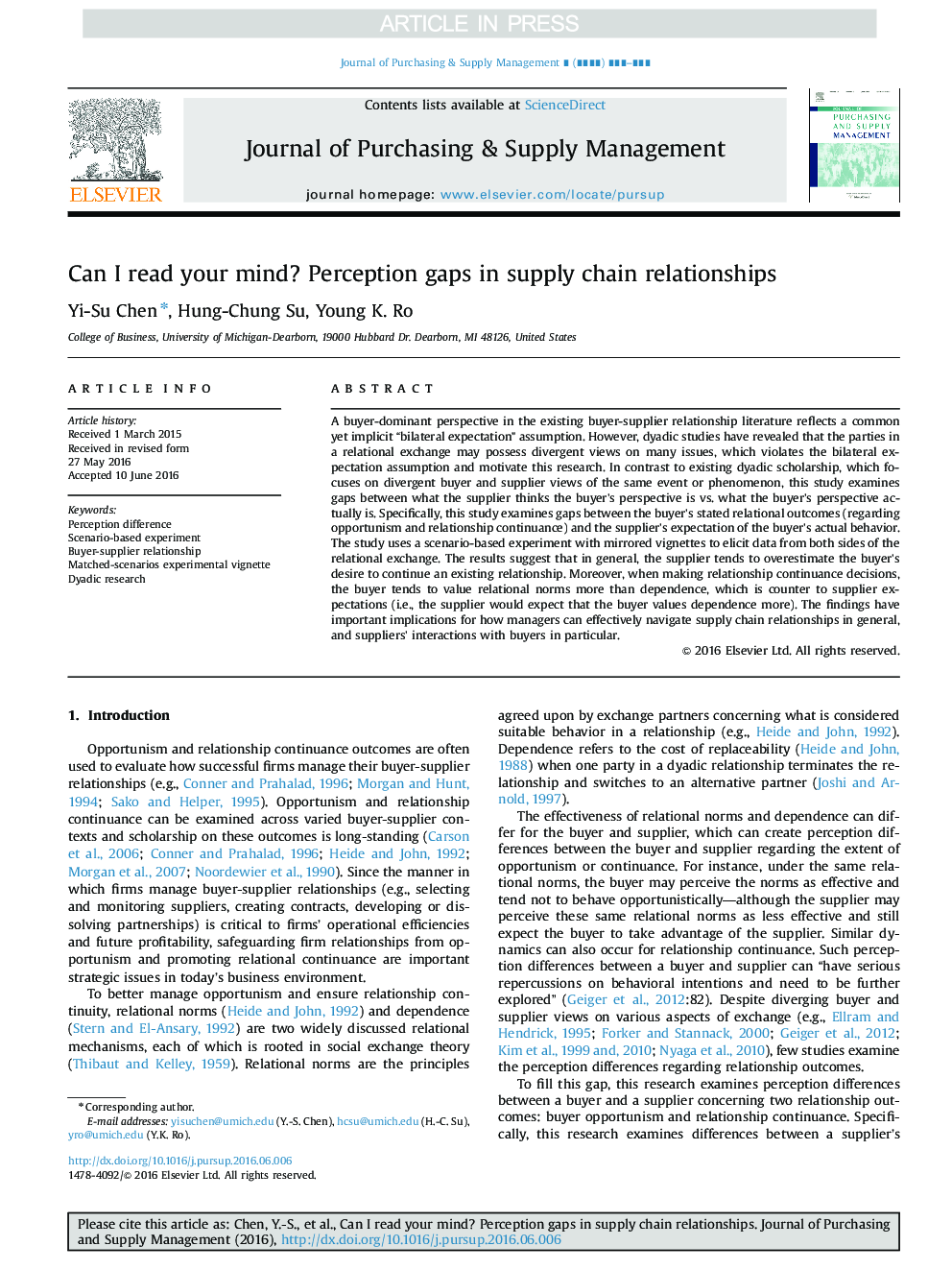| Article ID | Journal | Published Year | Pages | File Type |
|---|---|---|---|---|
| 5110216 | Journal of Purchasing and Supply Management | 2016 | 14 Pages |
Abstract
A buyer-dominant perspective in the existing buyer-supplier relationship literature reflects a common yet implicit “bilateral expectation” assumption. However, dyadic studies have revealed that the parties in a relational exchange may possess divergent views on many issues, which violates the bilateral expectation assumption and motivate this research. In contrast to existing dyadic scholarship, which focuses on divergent buyer and supplier views of the same event or phenomenon, this study examines gaps between what the supplier thinks the buyer's perspective is vs. what the buyer's perspective actually is. Specifically, this study examines gaps between the buyer's stated relational outcomes (regarding opportunism and relationship continuance) and the supplier's expectation of the buyer's actual behavior. The study uses a scenario-based experiment with mirrored vignettes to elicit data from both sides of the relational exchange. The results suggest that in general, the supplier tends to overestimate the buyer's desire to continue an existing relationship. Moreover, when making relationship continuance decisions, the buyer tends to value relational norms more than dependence, which is counter to supplier expectations (i.e., the supplier would expect that the buyer values dependence more). The findings have important implications for how managers can effectively navigate supply chain relationships in general, and suppliers' interactions with buyers in particular.
Keywords
Related Topics
Social Sciences and Humanities
Business, Management and Accounting
Business and International Management
Authors
Yi-Su Chen, Hung-Chung Su, Young K. Ro,
